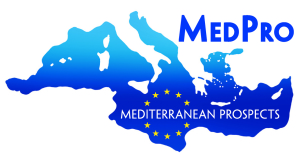The Euro-Mediterranean Network for Economic Studies – EMNES aims to provide a renewed vision for socio-economic development in the Mediterranean region, mainly focusing on employment creation, social inclusion, and sustainable development.
EMNES areas of research include the role of institutions, private sector and micro, small and medium sized enterprises and employment creation, role of education, skill mismatch and migration, finance, regulation and the real economy and regional integration.
EMNES will produce reports, scientific and policy papers and will disseminate through the organization of annual conferences, and workshop meetings bringing together leading researchers, academics, policy makers and representatives of the civil society to discuss and debate optimal policies for the future of the region.
EMNES is built on four core principles: independence, excellence, policy relevance and deep knowledge on Euro-Mediterranean affairs.
EMNES is a network of partners and associates research institutions and think tanks working on the Euro-Mediterranean region.
MEDPRO is a network of 17 research institutes (c. 100 researchers) from both shores of the Mediterranean funded under the Seventh Framework Program of the European Research Area (Budget of 3,6Million€) from 2009 to 2014.
The project aims to undertake a deep foresight analysis of the development issues in eleven countries in the Southern and Eastern Mediterranean participating in the Barcelona process and in the Union for the Mediterranean. The project undertakes an analysis of the current state and prospective development in main areas of socio-economic development: Geopolitics and governance; demography, ageing, migration, health and gender issues; sustainable development, management of resources, adaptation to global warming; energy and climate change mitigation; economic development, trade and investment; financial services and capital markets and human capital, education and development of skills. It brings the partial foresight analyses in these areas into a broader framework of quantitative general equilibrium modelling, and is completed with qualitative scenarios for regional and broader integration within the region and with the EU and policy conclusions for the EU approach. Given the broad scope of the research to be undertaken, the consortium has been composed with the aim of ensuring three equally important qualities: scientific excellence, multidisciplinary structure and deep insight into Mediterranean affairs. The coordinating institute is therefore collaborating closely with three other institutes with deep insight in Mediterranean affairs and European Neighbourhood Policy. Whereas the main objective is to provide targeted scientific support to the future development of the relations between the EU and the Mediterranean region, the impact of this project is underpinned by an exceptional effort of dissemination in both the EU and the Southern and Eastern Mediterranean countries.


